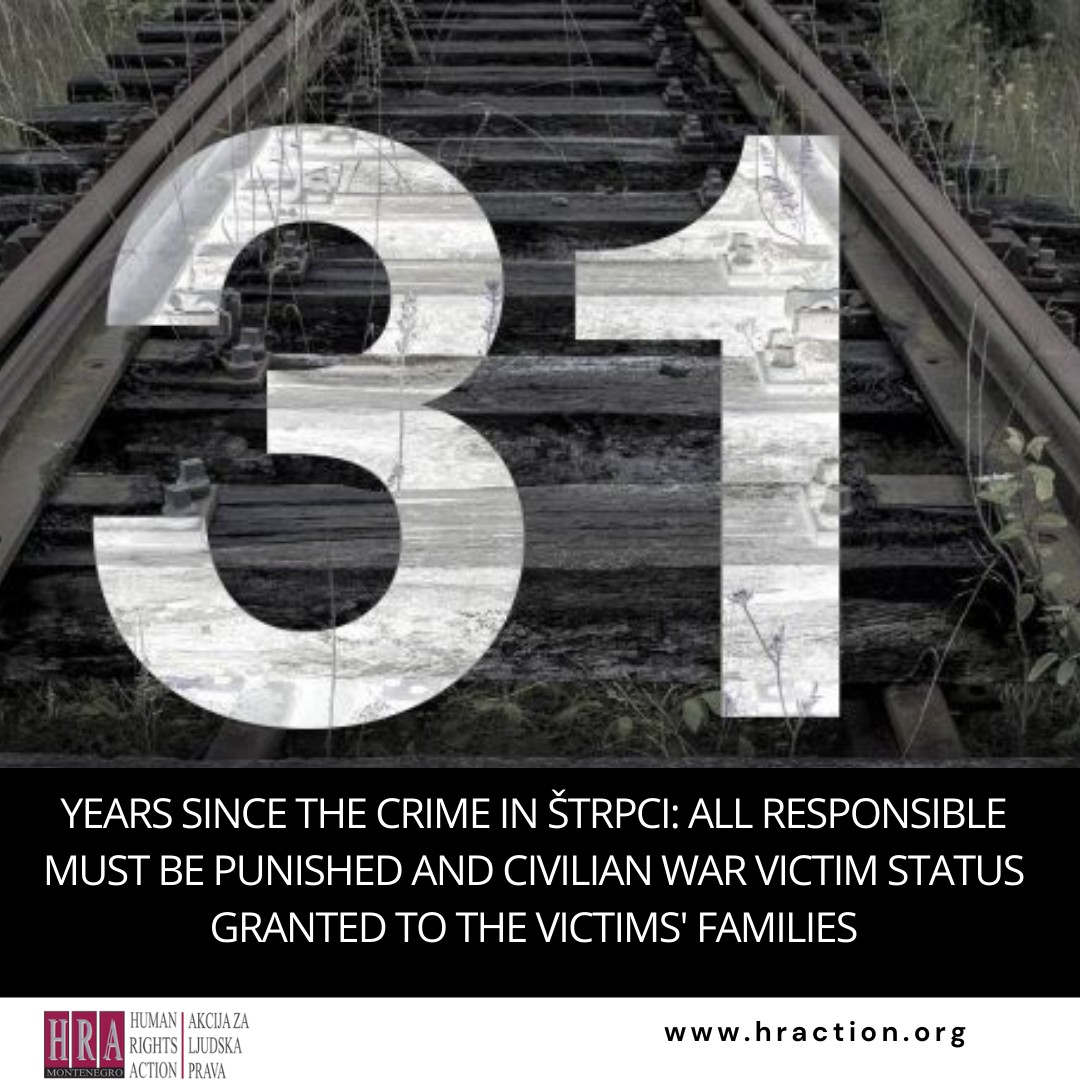
31 YEARS SINCE THE CRIME IN ŠTRPCI: ALL RESPONSIBLE MUST BE PUNISHED AND CIVILIAN WAR VICTIM STATUS GRANTED TO THE VICTIMS’ FAMILIES
27/02/2024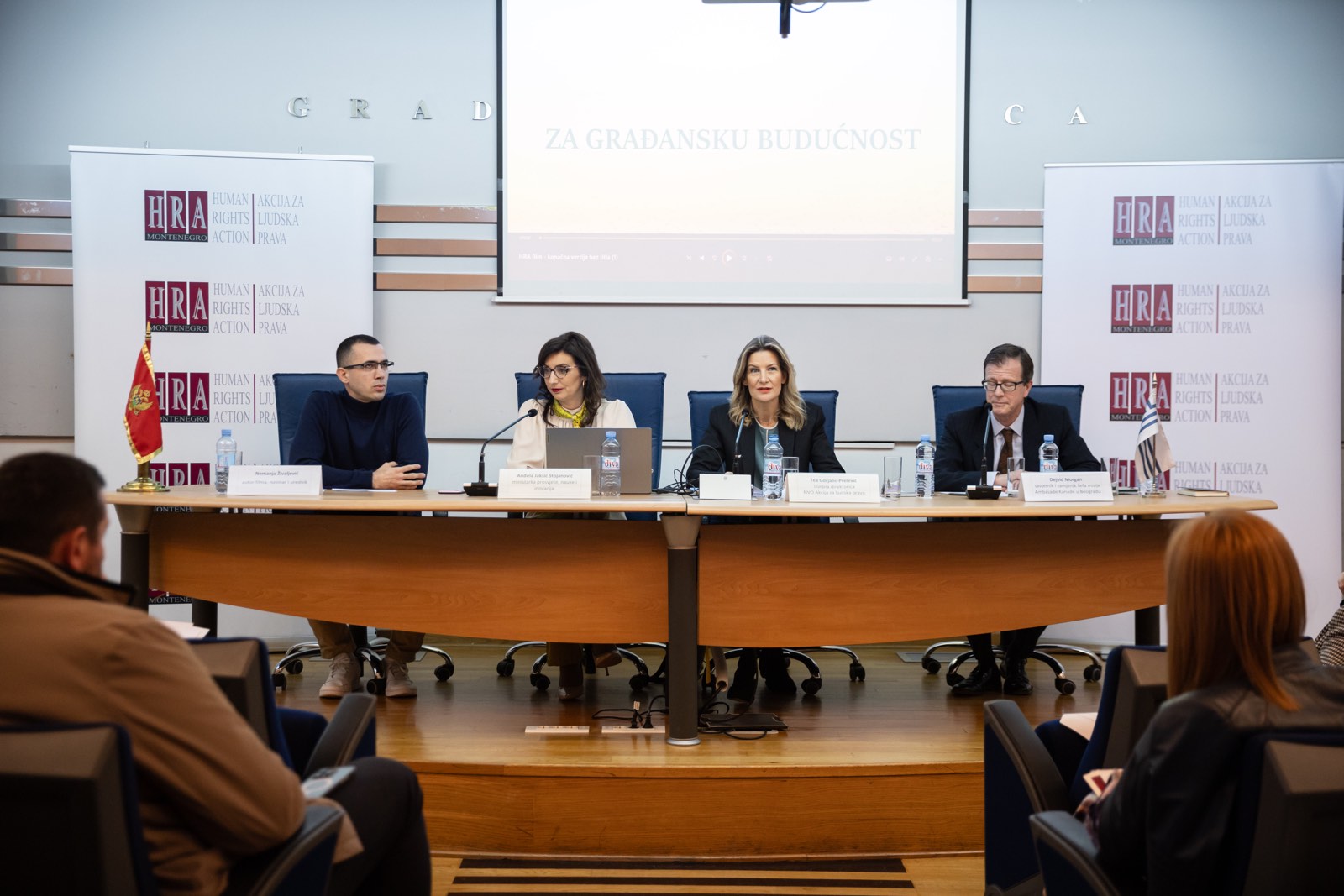
Children’s Right to Human Rights Education in Montenegro: The Subject of Civic Education Should Once Again be Made Compulsory
28/02/2024FROM THE PANEL DISCUSSION “FACING THE PAST – ACHIEVEMENTS AND CHALLENGES” IT WAS STATED: AN UNRESOLVED CRIME REPEATS ITSELF
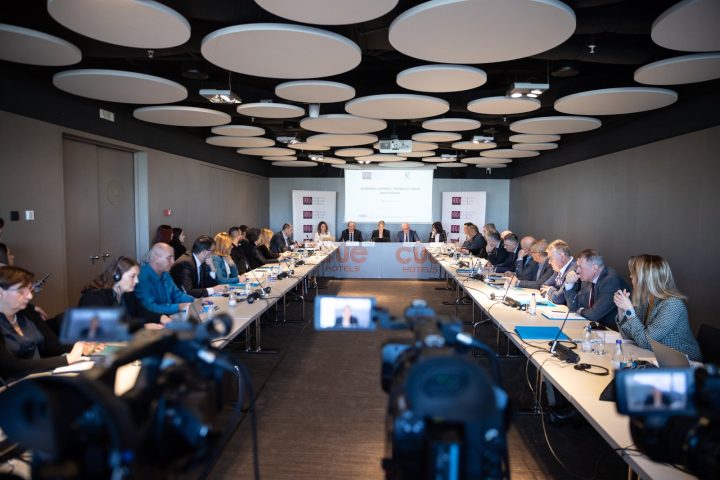
All perpetrators of war crimes from the 1990s must be prosecuted and brought to justice, all civilian victims should be compensated, every crime scene must be marked, lessons about these crimes should be included in history education, and those who were directly or indirectly involved in or supported war crimes must not hold public office. These were the conclusions of the panel discussion “Facing the Past – Achievements and Challenges.”
The Executive Director of the Human Rights Action (HRA), Tea Gorjanc Prelević, emphasized that these conclusions reflect the opinion of the majority of Montenegro’s citizens, based on a public opinion survey conducted by HRA with the DAMAR agency. She highlighted that “the majority of citizens believe that facing the past is essential for building a secure future,” and that this obligates the government and the state to finally confront the past in a strategic and thorough manner. “Facing the past involves both criminal justice and material and symbolic reparations – that the authorities visit all war crime sites and pay tribute to the victims.”
The panel discussion was organized by HRA in cooperation with the Bosniak Council, in anticipation of the anniversary of the war crime of the abduction of passengers from the train in Štrpci on February 27, 1993.
It was also noted at the panel that Montenegro has yet to confront the deportation of refugees from Herceg Novi, the torture of prisoners in Morinj, the displacement from Bukovica, the killing of civilians in Kaluđerski Laz, and other such events.
Prosecutor’s Office Ignores Salustro’s Report
The Director of HRA, Tea Gorjanc Prelević, reminded that in 2014, Mauricio Salustro, an EU expert, reported that the Bukovica case was misclassified, the deportation case was oddly qualified, and the verdict was based on the incorrect application of international humanitarian law.
Special Prosecutor Tanja Čolan Deretić, in response to a question from the HRA director, said she did not know if the prosecutor’s office had the report, but she had heard about it from the media.
“It is unbelievable that you don’t have this report. This man, a long time ago, objectively and with good intentions, stated what the prosecutor’s office needed to strategically work on,” emphasized Gorjanc Prelević.
The prosecutor responded that she was not sure if the report was in the prosecutor’s office archive, but she was aware of it, noting that “it was not only the prosecutor’s office but also the court that made mistakes.”
Suljo Mustafić, the President of the Bosniak Council in Montenegro, stated that it is disheartening that, after more than three decades, there has been no reconciliation with the war past of the 1990s:
“The most important thing is to judicially determine who and why planned, instigated, and participated in the crimes – almost no crime has been fully prosecuted. Some criminals still walk freely, and command responsibility is almost entirely excluded. The remains of the victims are hidden, families are now being denied the right to remember, and there is no mention of war crimes in textbooks.”
New Strategy and Amendments to the Criminal Procedure Code
Special Prosecutor Tanja Čolan Deretić emphasized that the prosecutor’s office recognized the inadequacy of the existing Strategy for Investigating War Crimes. In February this year, a decision was made to develop a new strategy, which is expected to be completed by the end of June.
She highlighted that their work is hampered by the inability to use evidence from The Hague and called for the amendments to the Criminal Procedure Code (ZKP) to be urgently submitted to parliamentary procedure.
“Most of the evidence is located in other countries,” she pointed out.
In response to appeals from attendees to address the attack on Dubrovnik, the prosecutor mentioned that there is one case related to the Dubrovnik battlefield and that Montenegro was part of the Užice corps.
In some old cases, she added, an investigation has been opened, without specifying which ones.
Researcher and legal advisor for HRA, Bojana Malović, clarified that these cases involve Bukovica and Štrpci.
Malović highlighted that of the 36 indicted in old war crime cases in Montenegro, 26 were acquitted, and some who were convicted did not spend a single day in prison. Currently, there are two new cases being processed, which were transferred from Bosnia and Herzegovina and Serbia, not initiated by Montenegro’s prosecutor’s office.
“Old cases must be approached more proactively and must not be forgotten. The previous work of the prosecutor’s office was very non-transparent,” she concluded.
Lawyer Velija Murić assessed that almost nothing has been done, and that the state’s treatment of crime victims is inexplicably improper.
He warned that impunity creates a distorted perception of the past and that it would be beneficial to pinpoint responsibility on specific individuals and remove collective guilt. Murić added that it is essential to finally pass the Law on Lustration and work more proactively on investigating war crimes.
“The rising trend of fascization in society warns us that something must be done. The biggest enemies are ignorance and lack of information,” Murić emphasized.
He asked the prosecutor if she considers what happened in Bukovica to be genocide.
“The investigation is ongoing; I cannot speak about the legal qualification of Bukovica at the moment, I cannot currently say whether it is genocide,” the prosecutor replied.
Alen Bajrović, the son of Osmo Bajrović, reminded that Montenegrin police captured his father and took him to his death, and that to this day, his remains have not been found: “I expect the Special State Prosecutor’s Office (SDT), after 32 years, to urgently work on clarifying the Deportation crime. We are the only victim’s family still living in Montenegro that has not accepted reparations, and I expect to find out who killed my father and where he is.”
The United Nations representative, Anjet Lanting, emphasized that there should be no impunity, that victims must be compensated, and that other countries have demanded this from Montenegro during the Universal Periodic Review (UPR): “There is only one trial ongoing, and we hope that amendments to the Criminal Procedure Code (ZKP) will bring improvements in prosecuting cases.”
Perućac Mass Grave
The President of the Commission for Missing Persons of the Montenegrin Government, Dragan Đukanović, stated that a database of missing persons has been created and that they are currently searching for 51 individuals:
“Lake Perućac is the largest mass grave. Some remains were found in 2010, and we are trying to search the lake, as well as the river flows of the Drina and Sava.”
He pointed out that work is being expedited on amending the Law on Veterans and Disability Protection to ensure protection for all civilian war victims from Montenegro.
Historian Novak Adžić emphasized that the then Montenegrin ruling structure is responsible, not the state of Montenegro, which did not even exist at that time: “In the 33 years since the outbreak of the war in Yugoslavia, the authorities in Montenegro have done very little, and what was done was often wrong, leaving many crimes and perpetrators unpunished.”
He stressed that education is essential and reminded that no high school textbook mentions the war crimes of the 1990s, and the situation is no better at universities:
“Those who forget the crime or the authorities who do not prosecute and punish it are indirectly and symbolically accomplices in the crime,” said Adžić.
No Government Representatives at the Panel
He concluded that the absence of anyone from the Government, including the invited ministers of culture and labor and social welfare, speaks volumes about their interest in this topic.
Ervina Dabižinović, coordinator of the Center for Women’s and Peace Education (ANIMA), and Demir Ličina from the “Štrpci – Against Forgetting” Association agreed with him.
“I am angry at the minister; her presence would mean something, it reflects the attitude towards the victims. Thirty years is a long period when we should be talking about final verdicts and completed processes, compensation, but unfortunately, that is not the case,” emphasized Ličina.
Dabižinović added that every site where a crime occurred must be marked and that denial or ignoring will get us nowhere.
“The absence of anyone from the government here today is indicative enough. A crime that is not clarified is a crime that will be repeated,” she warned.
The Reis of the Islamic Community, Rifat Fejzić, emphasized that if genocide occurred somewhere, it was in Šahovići, as no Bosniak lives there anymore. He stressed that “everything was started by politics, and politics must resolve it.”
Reparations for Society’s Healing
Filip Kuzman, Director of the Historical Museum of Montenegro, speaking about the history of memorializing war crimes, noted that we cannot simultaneously seek the erection of monuments for the deportation victims and have a street in Podgorica named after Pavle Bulatović, the minister of police who deported refugees:
“There is already a dead-end street named after him in Pljevlja.”
Daliborka Uljarević, Executive Director of the Center for Civic Education (CGO), stated that it is precisely the inert institutions that lead to us talking today about naming a street after Pavle Bulatović:
“Judicial justice is important, but equally important is the part that can be symbolically helped. Reparation is crucial for the overall healing of society. If we had included these topics in textbooks, if we had critically discussed them with students, we wouldn’t be in a situation where young people either don’t know or are misinformed about these issues.”
She added that public apologies, memorial markers, and symbolic reparations are “very significant for healing collective trauma.”
Mirsad Rastoder, President of the Executive Board of the Bosniak Council, concluded that all crimes must be completed in a procedural sense, all victims compensated, and the public informed from school age to create a clear picture in citizens’ minds of what happened, thus having a clearer past together. He called on all government representatives to thoroughly confront the past and close this unsavory chapter of Montenegrin history.
Photographer: Filip Roganović




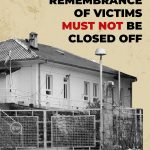

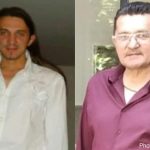
 English
English